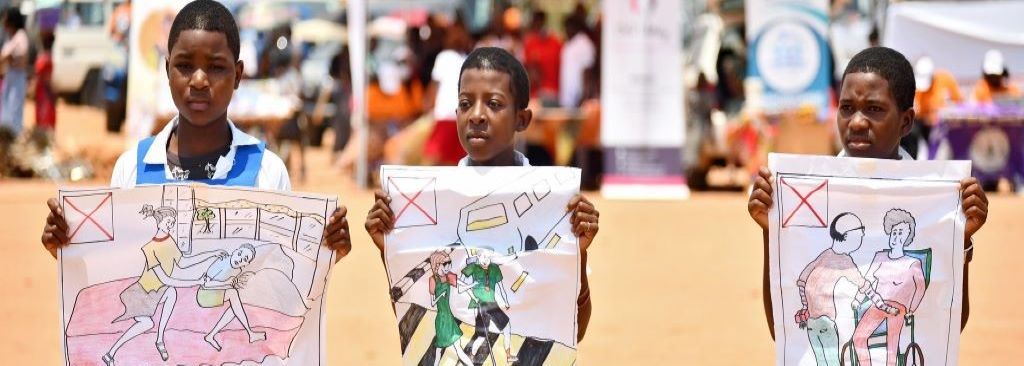Lara Kajs | 12 September 2023 |
Human trafficking is a prevalent, international crime that exploits men, women, and children for profit. It is a depraved form of slavery. Trafficking networks take advantage of people who are vulnerable, escaping conflict, or migrants seeking a better life elsewhere. Battling human trafficking in Malawi takes the efforts of local, state, and international actors, working together to bring the perpetrators to justice, and helping the victims overcome the trauma.
Malawi is a regional hub for human and sex trafficking. Traffickers exploit most victims within the country, using false offers of education and employment opportunities to target individuals. Teenage boys and girls are lured from the southern part of Malawi and transported to the central and northern regions and forced to work in tobacco fields, handling goats and cattle, or used for brick making.
Financial hardships intensify vulnerability to abuse, victimization, and coercion. This is reflected in the sharp increase in sex trafficking cases for the past several years. Women and girls are frequently taken to urban areas where they live in neglected conditions forced to work at local bars and coerced into prostitution. They are trafficked internally in Malawi, particularly in Lilongwe and Blantyre, but are also transported across international borders to neighboring countries Zambia, Tanzania, and Mozambique, as well as further destinations in South Africa, Europe, and the Middle East. Such criminal activity creates high profits for traffickers and comes with a low risk of prosecution.
In the Dzalika Refugee Camp near Lilongwe, more than 90 survivors of human and sex trafficking were rescued after an investigation by the United Nations Office on Drugs and Crime (UNODC) in 2022. The individuals rescued were from Ethiopia, Burundi, and the Democratic Republic of Congo (DRC), many of whom had fled to the Malawi Camp to escape conflict in their home country. At least five perpetrators were arrested from Malawi, Rwanda, DRC, Ethiopia, and Burundi. However, convicting the accused has been challenging because the witnesses are afraid to testify, which is not uncommon.
Prosecution, Protection, and Prevention
The Malawi Trafficking in Persons Act 2015 (TIP) makes provisions for the prevention and elimination of human trafficking. TIP criminalizes labor and sex trafficking. It imposes punishments of up to 14 years imprisonment for offenses involving an adult victim and up to 21 years imprisonment for those involving a child victim. Still, a culture of impunity is being fostered as perpetrators are not being held accountable.
The government must do more to ensure that laws are effectively implemented. State actors are frequently slow to respond and do not prioritize cases. A lack of reliable systems means cases are not effectively identified, nor acted upon. Investigations are, in most cases, inadequate. There is a need for increased monitoring of trafficking crimes as well as efforts to identify traffickers and victims at border crossings and internal police checkpoints. The lack of awareness among government actors and the public about the prevalence of human and sex trafficking in Malawi leaves the vulnerable unprotected.
The courts are not adequately meeting the number of trafficking cases that require attention. There is a pressing need for cases to be prosecuted and adjudicated within a reasonable time. Cases are hindered by frequent delays including numerous interruptions and cancelled court hearings. The Malawian justice system needs to respond better to the realities and requirements of trafficking survivors, including repatriating Malawians exploited abroad.
All of this puts women and girls at further risk and causes additional harm to survivors who are not receiving the justice and support they need and are entitled to under Malawian law and the international human rights commitments the country agreed to uphold.
Awareness must be a chief component of prevention. Malawi must put in place necessary measures to protect women and girls from all forms of violence and exploitation including sexual exploitation and trafficking. The state should address the specific vulnerabilities of adolescent girls that put them at heightened risk of trafficking and other forms of exploitation and abuse. Escaping abusive situations, victim-blaming, and stigma, as well as securing safe shelter, and accessing medical and psychosocial care is key to recovering from physical, sexual, and psychological harm.
The Malawian government needs to increase funding and facilitate awareness across communities, law enforcement, and the judiciary about sex trafficking. This will improve the ability of stakeholders to adopt suitable prevention and response measures. A critical component should be sensitivity training for judges, prosecutors, and police so they are better able to effectively identify, investigate, and prosecute crimes relating to sex trafficking.
Improvement in the collaborative relationship between NGOs, international organizations, and the government will increase the capacity to provide shelter and protection services. Making trauma services available to allow victims the appropriate care, and to prevent the re-traumatization of victims participating in criminal proceedings against traffickers, should be a crucial component. Access to the Anti-Trafficking Fund needs to be made available to NGOs to allow them to disburse funds when providing services to victims.
Sexual exploitation and human trafficking have damaged the lives of thousands in Malawi. While the Government is making some progress in efforts compared to previous report findings, it still has much work to do.
Photo Credit: Orange the World 2021 – Malawi by UN Women Gallery. Licensed under CC by NC ND 2.0

